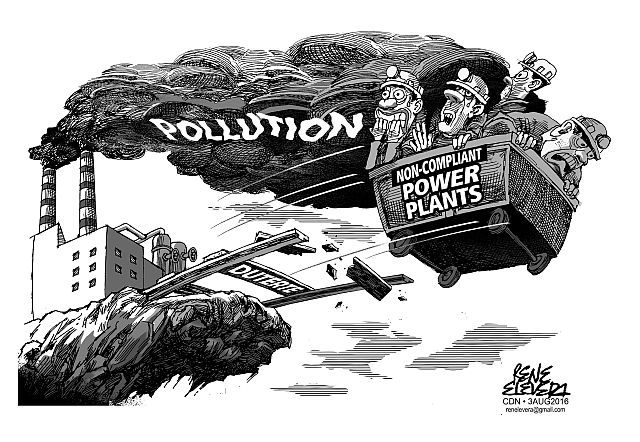It was only a matter of time before President Rodrigo Duterte renounced the country’s signing of the Paris accord that required countries from all over the world to reduce carbon emissions substantially over the next few years.
During the presidential debates in Cebu early this year, then Davao City mayor Duterte mentioned that it is First World countries like the US, China and most of Europe that should be blamed for the current global decline in climate conditions.
It is no coincidence that among the first priorities of Democratic presidential candidate Hillary Clinton was to push for the environmental agenda set by last year’s Paris summit by requiring those who signed the accord to stand by their commitment.
President Duterte doesn’t feel bound to honor the accord signed by his predecessor, and while he won’t say it out loud, his administration would either encourage outright more coal plants—which would be quite the turnabout if he will stand by his Environment Secretary Gina Lopez—or stand by existing agreements with power providers to build coal plants in certain areas which of course will invite stringent opposition from the environmentalists.
We’d likely believe the second scenario, with President Duterte reminding these coal plant proponents to “do it right” in order to avoid crossing environmental standards.
Or—and this is a big OR—Lopez somehow manages to invite investors to build alternative, cheaper, green technology energy plants such as geothermal, wind and solar that are powered by the elements to provide substantial energy reserves to the existing power energy mix of coal and fuel.
We do understand the intensified lobbying and constant complaining by ecology advocates or environmentalists for a total shift to renewable energy sources but until they provide at least the technology to produce power plants or find means to cheaply tap and harness them, they cannot realistically expect governments in countries like the Philippines to heed their call.
The country, as it is, has yet to pay off those onerous contracts signed with those greedy power firms during the Ramos administration in order to bail it out of the energy crisis in the late ’80s to the early ’90s.
Now the country not only has to deal with the highest power rates in Asia, it also has to handle a continued rising demand for power mostly by industries and an international accord that requires countries to reduce carbon emissions caused by fossil fuels which remain the country’s primary sources of energy.
This is the balancing act being faced by the Duterte administration and only through aggressive research development of green energy plants and power sources can it at least balance energy demand with efforts to improve climate conditions.
Disclaimer: The comments uploaded on this site do not necessarily represent or reflect the views of management and owner of Cebudailynews. We reserve the right to exclude comments that we deem to be inconsistent with our editorial standards.

